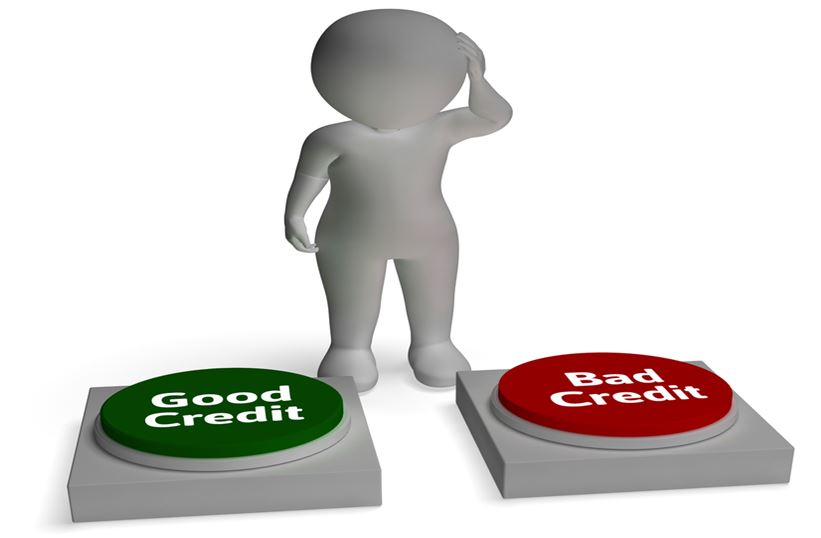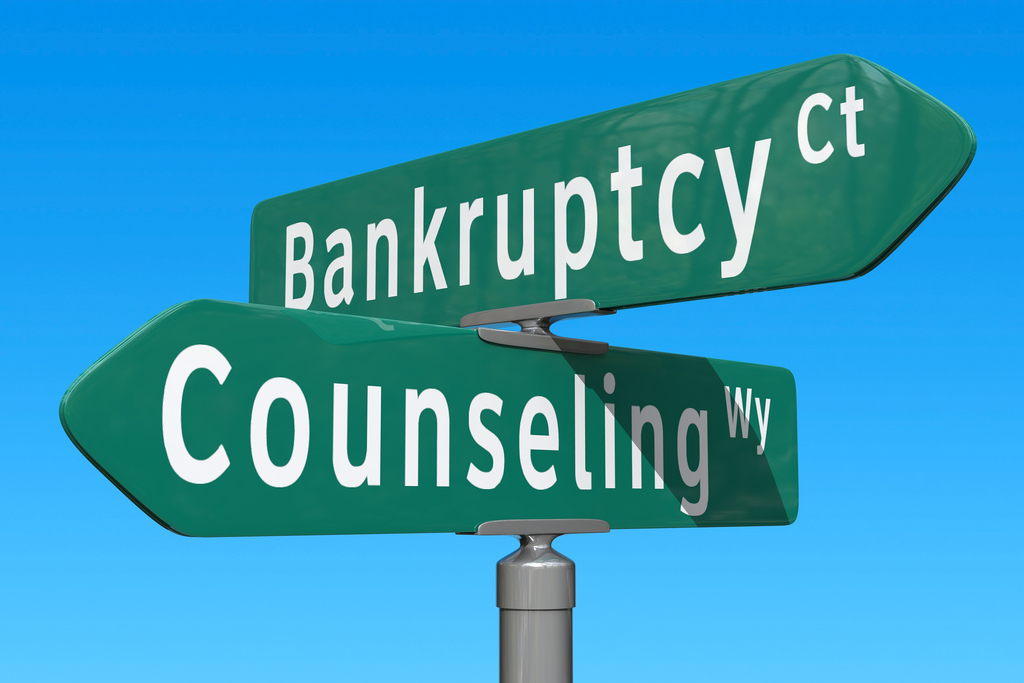
by admin | Consumer Proposal, Credit Counseling, Credit Repair, Debt Management

It is true that bad credit is costly and causes a lot stress. However, contrary to popular belief, it is the not the end of things. You can recover from even the worst of credit situations. If your credit situation is far from ideal then you may find fixing your credit rating a bit of a challenge. However, no matter how bad your credit situation becomes, you can still improve your credit rating. Some credit repair approaches may require you to do a bit of research. However, the majority of the ways to improve credit rating are easy to perform.
It is important for you to keep in mind that your credit rating will be impacted by every monetary decision you make. There are many things that you can do in your everyday life to improve your credit rating. Moreover, you must avoid certain things if you want to better your credit situation. Following are the Do’s and Don’ts for improving your credit rating.
Do’s
We’ll start with the Do’s for improving your credit rating.
Do pay your bills on time
The first of the Do’s for improving your credit score is paying your bills on time. Your credit rating or score depends a lot on your payment history. People who make timely payments are bound to have a good credit rating.
Do use your credit cards conservatively
According to a 2009 financial report, people who spent less than 30% of their available credit has the best credit rating. For this reason, you must ensure that you use your credit cards conservatively. Stop impulse buying and using your credit card to buy unnecessary things. Once you do that, you’ll see significant improvement in your credit rating.
Do check your credit history
It is important for you to regularly check your credit history. Banks use your credit history to score you. If your history contains incorrect data, you may be declined a new loan or credit card even if you pay your bills on time. So, regularly check your credit history to ensure there are no mistakes in it.
Don’ts
Now that we’ve looked at the Do’s for improving your credit rating, it’s time to reveal the Don’ts for improving your credit score.
Don’t max out your existing credit
A mistake that people make time and again is maxing out their existing debt. This is something you mustn’t do. Your credit rating will suffer if you touch the limit so avoid doing that.
Don’t delay your payments for too long
This is a no brainer. If you continue delaying your debt payments, the interest on the debt will keep on increasing. Ultimately, your debt will become impossible for you to pay off. To avoid this from happening, don’t delay your payments for too long.
There you have it—the Do’s and Don’ts for improving your credit rating. To find out more about improving your credit score, get in touch with a credit counselor.

by admin | Consumer Proposal, Credit Counseling, Debt Management

If you don’t use it appropriately, your credit card may cause a lot of problems for you in the future. So, how do you avoid credit card trouble? Simple! By spending only what you can afford to pay back promptly. Many people in the United States cannot afford to pay for a house or a vehicle. So, to buy a house a vehicle or house, these people borrow money from a bank or other lender. While debt isn’t necessarily a bad thing, it is recommended that you manage your debt wisely to avoid any future financial problems.
Before you start managing your debt, you must find out how much debt you have. How can do that? Following is an equation that shows your debt to income ratio:
Debt to income ratio= Monthly fixed loan repayment
Gross monthly income
By using the aforementioned equation, you can find out whether or not you have too much debt. In case you have significant debt, you must find out the best ways to manage it. Following are some debt management ways that credit counselors recommend.
Budget
Are you concerned about your long-term financial health? If yes then the first thing that you need to do is create a budget. When creating a budget, the first thing that you need to do is create two lists: income and expenses. Once you’ve done that, minus your total expenses from your total income. On the other hand, you have nothing to worry about if you get a positive number because number indicates that you’re living below your means. If you get a negative number then it is a clear sign that you need to mend you ways. Basically, a negative number denotes that you’re living beyond your means. Now, there are two ways of dealing with this situation: decrease spending or increase income.
Develop a debt management plan
Using credit wisely is the only way to achieve good financial health. Also, you’ll need a debt management plan if you want to minimize your debt. To develop a debt management plan, the first thing that you need to do is list all of your debts. Starting from the smallest, rank your debts according to their size. Once you’ve listed down your debts, you need to work out how you’ll pay off each debt. Once again, start with the smallest debt.
Many people would advise you to pay the debts with higher interests first. However, a considerable amount of time is required to pay off these debts. So, if you start with these debts, you’re likely to get ‘stuck’. On the other hand, if you start with the smallest debts, you score some early ‘wins’ which will give you the confidence required to deal with and pay off the larger-sized debts.
Debt can cause a lot of future problems if isn’t dealt with appropriately. By using the aforementioned ways and talking to credit counselors, you can ensure that debt is not a problem for you in the future.

by admin | Bankruptcy, Consumer Proposal, Credit Counseling, Credit Repair

No matter how hard we try to prevent it, our expenses keep on increasing. Each new expense increases our cost of living. To manage this ever-increasing cost of living, most people use credit. Ultimately, this results in more debt, making our life even tougher. Let me be very clear: there are no short cuts when it comes to managing your cost of living. There are only two legitimate ways of effectively managing your cost of living: decrease expenditure or increase income. If you choose to do the former then the very first thing that you need to do is create a budget.
Once you’ve created a budget, you’ll know exactly what you spend on and how much. This will allow you to curtail or eliminate unnecessary expenses. This in turn will allow you to lower your cost of living and increase savings. To help you manage your expenses and increase savings, following are 4 tips to lower your cost of living recommended by credit counselors.
Conserve
Most of our monthly income goes towards the payment of utility bills. This is especially true for people with big houses. Even if you live in an apartment, utility bills are going to be a major monthly expense. The good thing is that you can lower the cost of utilities by making small changes including turning off the lights and electronic devices in your house when you’re not using them. By conserving energy, you will lower your monthly utility bills.
Always visit the grocery store with a list
A mistake that most people make is going to the grocery store unplanned. When people go to grocery store without a shopping list, they tend to spend more than they need to. This increases the monthly grocery expense which in turn increases the cost of living.
Find ways to lower your housing costs
For most people, housing is the largest expense. If you’re one of them then you must find ways to lower your housing costs. Now, if you live in a rented property, make sure that the house you’re living in is something you can afford. If not, move to a smaller house in the same vicinity or simply shift to a cheaper neighborhood. On the other hand, if you’ve mortgaged your home, rent out any space that you can in your house. Apart from helping you to pay for your mortgage, this will allow you to take care of your other expenses.
Consolidate all your debts into a single loan
There are ways for you to consolidate all your debts into a single loan. By doing this, you will lower the debt you have to pay each month. This will turn will allow you to lower your cost of living.
Lowering the cost of living can be a real challenge. However, by connecting to a credit counselor, you can make this task easy.

by admin | Bankruptcy, Consumer Proposal, Credit Counseling, Credit Repair, Debt Management

For many people, managing debt is a real challenge. Luckily, there are people who can help you to manage and pay off your debt. The people I’m referring to are credit counselors. The bad news is that not all credit counselors are the same. Some of them may not act in your best interest. For this reason, you need to find ways to separate the good from the bad. Once you know the ways of filtering out the ‘good’ credit counselors, it will become easy for you to find the right credit counselor for yourself. So, without wasting any further time, let’s take a look at the 5 ways to find the right credit counselor.
Know what you want
When looking for the right credit counselor for yourself, the first thing that you need to do is find out what you want from the counselor. Are you looking for general advice, simple budgeting, debt management, or bankruptcy counseling? Once you determined this, you can start searching for a credit counselor who ticks all the boxes.
Find out the services offered by the different credit counselors
When looking for a credit counselors, one of the most important things that you need to do is find out the services offered by the different counselors. It is true that debt counselling is one of the most important offered by a credit counseling agency. However, reputed counselors offer more than just debt counselling. So, look for counselors who offer budgeting and bankruptcy services in addition to debt management.
Determine how much you can pay for credit counseling
Let’s be honest, no one provides services for free including credit counselors. While your first session with them may be free of charge, you will have to pay for any follow-up sessions. For this reason, you need to determine how much you can afford to pay for credit counseling. Before working with a credit-counseling agency, inquire about their fees and costs. Ideally, you should get the prices or quotes in writing.
Find out about confidentiality
Most people who get credit counseling want to keep their information confidential. If you’re one of them then find out if the credit-counseling agency you’re thinking of working with keeps consumer information confidential.
Finding the right credit counselor is not easy. However, by using the 5 ways to find the right credit counselor mentioned above, you can make the task simple.

by admin | Bankruptcy, Consumer Proposal, Credit Counseling, Credit Repair, Debt Management

Today, the average American has more than a single credit card. This coupled with the American lifestyle of “gotta have it now” has led to a lot of problems. Specifically speaking, it has led to a lot of debt. In fact, in many cases, the debt has gone out of the control and individuals have been forced to file for bankruptcy. Believe me, bankruptcy is something you’d want to avoid. After all, living at the mercy of others is never a good feeling.
Are you facing financial difficulty and pondering filing for bankruptcy? If yes then you’re not alone. Make it absolutely clear that your debt has got nothing to do with your personality or way of living. Even the very finest of people may go bankrupt at some point in their lives. Most people who suffer bankruptcy are regular, hard-working people who encounter some sort of blockade. A single blockade whether it was an accident, reduction in wages or the loss of job can send you in the wrong direction.
Come what may, you cannot prevent the aforementioned blockades. What you can do though is limit living on credit. Your debt will start to multiply as soon as you start using your credit cards to pay for what you can’t afford. Eventually, your debt will cause you to go bankrupt. The best thing you can do to prevent such a situation from occurring is avoiding the things that lead to bankruptcy in the first place. Following are 3 tips to avoid bankruptcy that credit counselors recommend.
Develop a budget
This is a no brainer. If you don’t have a budget, there is a 90% chance that you’ll go bankrupt. Basically, you need to list down all your monthly expenses and allocate resources/money to them based on their importance. Limit the money you spend on unimportant things such as home décor, branded clothing, designer shoes, and so on. This will help you to better manage your debt and avoid bankruptcy.
Pay off your debt over time
If your debt hasn’t yet gone out of control, sit down and determine how much you owe. In such a situation, it is more than possible for you to pay off your debt on your own if you re-adjust your budget and use a debt management plan. Also, taking to a credit counselor would be a good thing to do in this situation.
Take help from credit counselors
As mentioned above, credit counselors can help you to better manage your debt. Additionally, they can advise you how to avoid bankruptcy. Knowledgeable people, credit counselors have a sound financial background and can tell you anything and everything you’d need to know about avoiding bankruptcy.
Bankruptcy is not a good situation to be in. Luckily, you can avoid bankruptcy by using the tips mentioned above.

by admin | Consumer Proposal, Credit Counseling, Credit Repair

There are many things you can do to make the mortgage process smooth. This includes determining borrowing power and researching the market. Let’s now take a look at the importance of determining borrowing power and researching the market.
Determining borrowing power
In order to minimize the amount you need to borrow, try to accumulate as much deposit as you can. By doing this, you will lower the interest that you’ll eventually have to pay. According to credit counselors, following are some of the monetary factors that you should consider before buying a house.
Potential rise in interest rates
Once the loan is established, you should consider the interest rates’ potential to rise. Once you’ve don’t that, make sure that you have a safety stock that allows you to make higher repayments in case the aforementioned situation occurs.
Fees and charges
Fees and charges other than the mortgage amount can be expected by those looking at buying a house. Depending on the financier and the buying price, these costs will vary. Costs such as loan establishment may be included in these typical additional costs. Some of the common charges that you may have to incur include:
- Insurance premiums
- Bank charges
- Legal fees
- Transfer duties
- Stamp duty
There are you have it—the things to consider when determining your borrowing power. If you want to know more you may have then you should talk to your financier or a credit counselor or www.egta.ca before you start looking for a house. Now that you know how you can determine your borrowing power, it’s time to look at the importance of researching the market.
Researching the market
When purchasing a home, there are several things to consider. If you want to avoid having to ditch the deal later on, research in the following ways.
Walk by the house and do spend time in the neighborhood
During the week, walk by the house, both during the day and at night. Spending time where the house is located is important. This will help you to decide if the neighborhood is safe to live in or not.
Find out the ‘days on market’
The amount of time a house has been on the market is an important thing to consider when purchasing a home. The most recent price reduction and the “days on market” are accessible through your agent.
Find out the amount of time the seller has owned the property
You need to know the amount of the time the seller has had the property for. If you don’t want do it yourself, you can ask your agent to do it for you.
Now that you know the ways to determine your borrowing power and research the market, you’re ready to get your loan pre-approved and buy the house. To find out how you can ensure regular mortgage payments, get in touch with a credit counselor.















